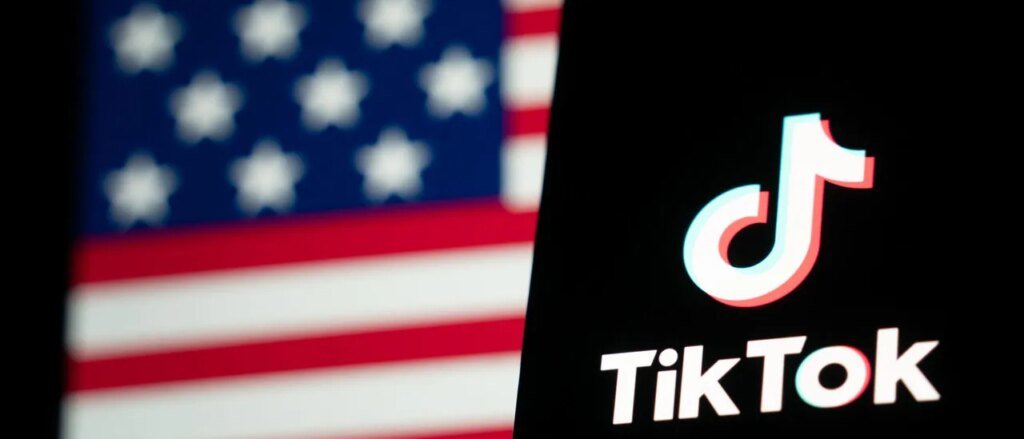Trump’s White House Joins TikTok: A Mixed Bag of Reactions
When the announcement came that President Trump’s White House would be joining TikTok, I found myself encouraged, though not entirely surprised.
In Washington, many still view TikTok merely as a platform for silly dances. For my generation, however, it’s more than that; it’s the social media equivalent of a news hub. Ignoring it, particularly by Republicans who want to connect with Gen Z, seems like a missed opportunity—almost a political error.
As someone from Generation Z and having chaired the RNC Youth Advisory Committee, I’ve had direct interactions, including a one-on-one meeting with the president during the campaign, where I urged him to consider joining TikTok. It wasn’t about an affection for China but about recognizing the app’s influence, especially with younger voters. It’s clear that too many conservatives have been hesitant to engage in a space that is rapidly being filled with content from the left.
Yet, I also face criticism. TikTok’s parent company, ByteDance, is based in Beijing, raising valid concerns about the Chinese Communist Party’s influence and data security. So, the real question isn’t whether TikTok matters—data clearly indicates that it does—but rather how we can address the security risks while still reaching the voters who frequent the platform.
Looking at the statistics, nearly 39% of U.S. adults under 30 state they often receive news through TikTok, with some surveys suggesting it may be even higher. This is a stark contrast to traditional cable news, where young subscribers are scarce. In fact, about 71% of Gen Z and Millennials gather news daily from social media—and they’re not limiting themselves to just one platform.
While scrolling through Instagram, YouTube, X, Reddit, and Snapchat, it’s evident they engage with multiple sources weekly. Moreover, 58% of voters under 30 are “passive” news consumers; they stumble upon information while casually scrolling—not actively seeking it out. If political figures, especially those on the conservative side, aren’t visible here, they risk losing the entire narrative.
This is why the establishment of Trump’s TikTok account is so crucial. His first eight months have been marked by significant accomplishments—economic recovery, border security, and revitalizing America’s global stance. But my peers won’t learn about these unless these achievements show up in their feeds.
Let’s be real for a moment. Trust issues with TikTok persist. U.S. intelligence officials have raised concerns about data collection and how algorithms function. Given ByteDance’s Chinese origins, there’s reason to worry about potential access to the data of millions of young voters, which could alter trending narratives.
These apprehensions are valid, but outright banning TikTok isn’t the solution. Doing so would be akin to how, in the 1960s, some viewed television as detrimental, leading conservatives to shy away from it. Ignoring where the next generation is consuming news means losing them entirely.
So, what’s the way forward? It’s not about walking away from TikTok; it’s about Americanizing it. The U.S. needs to enforce regulations that would see TikTok acquired by American companies, creating an independent platform adhering to U.S. privacy laws. This would diminish the CCP’s leverage while still catering to the millions of young users who depend on it.
This strategy isn’t a new one. The Trump administration attempted something similar back in 2020, and bipartisan lawmakers have suggested comparable ideas. Ignoring genuine national security risks while shutting out primary news sources for younger audiences simply doesn’t make sense.
For the past few years, I’ve been working on drawing Gen Z into the conservative movement. From what I’ve observed, young people are not tuning into Sunday morning shows; instead, they follow “Newsfluencers” and engage with 30-second TikToks, often placing more trust in individuals than established brands. About 37% of those under 30 receive news from influencers rather than traditional media.
This is the new landscape. If Republicans refuse to engage on platforms like TikTok, they effectively surrender the floor to the left. However, if we choose to engage authentically and directly, there’s a potential to secure the future.
It’s crucial for Trump’s White House to capitalize on TikTok. Gen Z represents the future of the GOP, and to capture their attention, being present in their feeds is non-negotiable.
Yes, the ByteDance and CCP issue must be addressed, but banning TikTok isn’t the way forward. It’s about severing ties from Beijing and placing it under American oversight. This ensures that younger voters keep access to their platform, maintains national security, and preserves future opportunities for Republicans. Neglect TikTok and you also overlook Gen Z—and ignoring them is to overlook the future.







